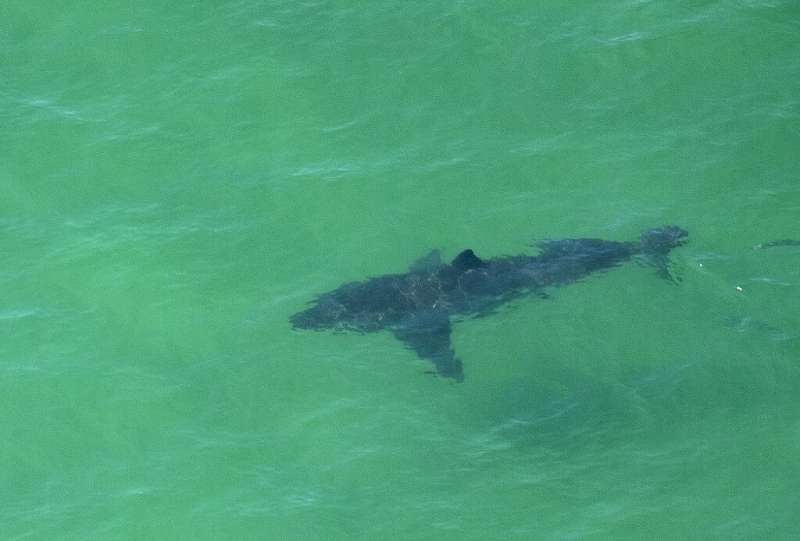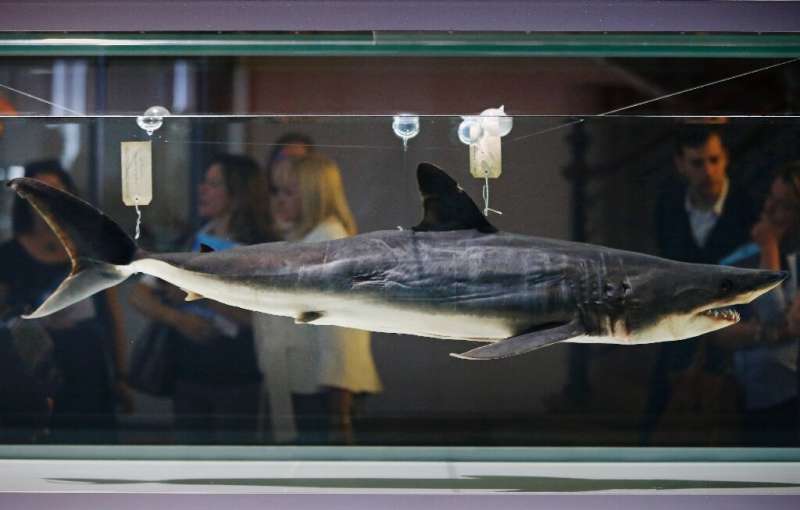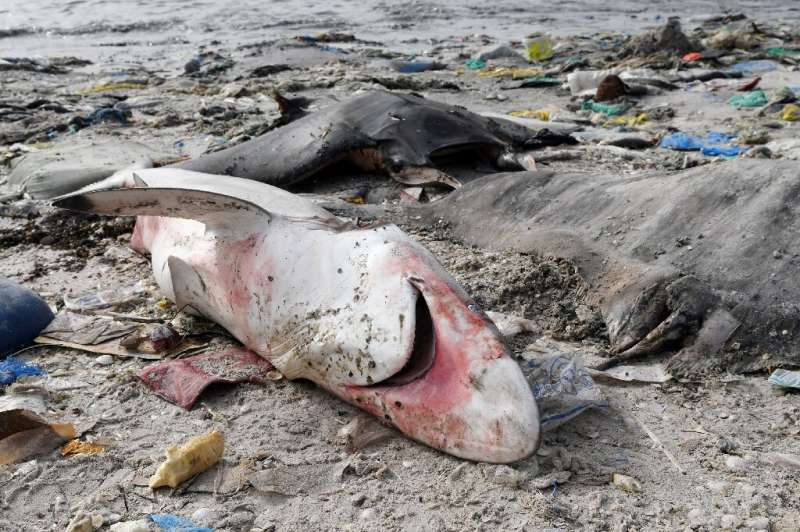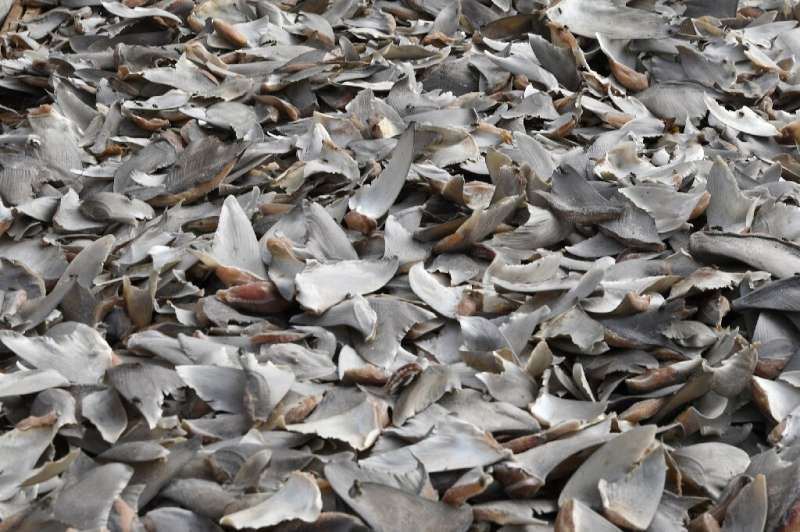Sharks feel the love as nations push protection of marine species

Sharks appear to be getting an image makeover as countries move to restrict trade in several species of the oceans' top predator in a push to extend more protections to marine species.
International restrictions on trade in 18 species of sharks and rays and three sea cucumber species appear set to take effect, following a series of votes in Geneva on Sunday at a meeting of the parties to the Convention on International Trade in Endangered Species (CITES).
The parties voted overwhelmingly to list the marine species under the treaty's Annex II, under which international trade in a plant or animal species is subject to oversight and guarantees of sustainability.
The votes to list the marine species, including makos—the fastest sharks in the ocean—still need to be approved in a plenary session before the 12-day conference wraps up on Wednesday.
CITES, which regulates trade in over 35,000 species of plants and animals, came into being more than four decades ago, but it was not until 2003 that a shark species was included in its listings.
It has been difficult to summon sympathy for sharks, which have stalked the oceans for more than 400 million years, and which thanks to vivid horror stories and films have long haunted human nightmares.

'The new dolphins'
"Because of these movies, Jaws and all these, sharks for a long time didn't really have a lobby," Ralf Sonntag, a marine biologist International Fund for Animal Welfare (IFAW), told AFP.
But perceptions appear to be changing.
"Sharks are the new dolphins," Sonntag said, pointing to countries like Fiji where shark hunts have been replaced by adventure tourism offers to swim with sharks, providing an alternative source of revenue.
Fishing nations have in the past voiced strong opposition to CITES listings of fisheries species, which are already covered by a number of international treaties.
A number of Asian countries especially argue against more regulation, insisting that available data does not prove sharks and rays are truly threatened.

Opes Oceani, which works with the fishing industry, says that regional fisheries management organisations are best suited for managing fish species, warning that with international regulation "you could end up with a ban on commerciable species."
But proponents maintain that CITES, which can impose trade sanctions on countries which do not adhere to its rules, has proven far more effective at pushing countries towards better species management.
"The parties are becoming more aware" of the importance of protecting even scary predators from overfishing, said Jennifer Sawada, who heads shark conservation efforts at Pew Charitable Trusts.
"They are using CITES as a way to drive more management domestically and internationally," she told AFP.
100 million sharks
Conservationists insist on the urgency of regulating and restricting trade in a range of shark species.

Upwards of 100 million sharks are fished every year, mainly for their valuable fins, which are used in the Asian status dish shark fin soup, and can fetch as much as $1,000 per kilo.
The financial incentives for fishing sharks are huge. According to the United Nations' Food and Agriculture Organization (FAO), trade in shark products amounts to nearly $1.0 billion each year.
Unregulated fishing and trade can meanwhile have a devastating effect for many species of shark and ray mature slowly and have few young, meaning it takes a long time for threatened populations to recover.
The International Union for Conservation of Nature (IUCN) said in March that 17 species of rays and sharks face extinction.
But while there is growing recognition of the threat facing sharks, their situation has yet to garner the same level of concern as iconic land species like the elephant and rhinoceros.
If they had, Luke Warwick of the Wildlife Conservation Society said many threatened sharks and rays would already be listed under CITES Annex I, which bans all international trade in the species.
© 2019 AFP





















